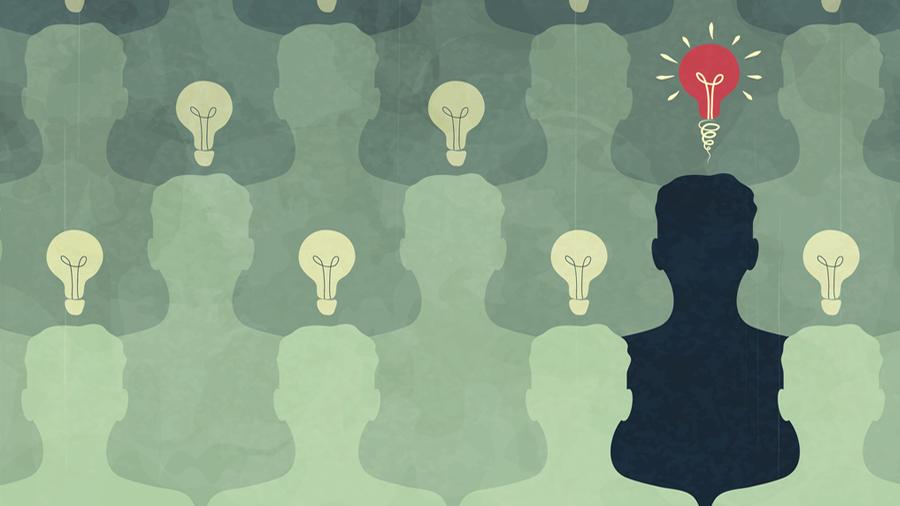At home, maybe you binge-watch House of Cards. At work, you face an entirely different set of preoccupations. So what should you obsess about as a savvy meeting professional, if you are to produce best-in-class events? My most successful clients do the following.
1. Ditch the Platitudes and Gratitudes
Right out of the gate, you make—or break—the success of an event. In the initial moments of a meeting, audience attention spans are at their highest levels. And what almost always comes first in a show script? What I call platitudes and gratitudes: over-the-top thanking of people and sharing often-meaningless content.
What Brian Walter (MPI Washington State Chapter), incoming president of the National Speakers Association, calls “emphatitudes: platitudes stated emphatically.” Attending a large, mission-critical, 90-minute meeting not long ago was akin to witnessing a slow-motion train wreck. I painfully sat through the opening speaker’s first 10 minutes.
Successful meeting professionals obsess about these opening moments.
It felt, and likely was, unscripted and seemingly without intent: Good morning. I didn’t hear you. GOOD MORNING! We are so excited you’re here. Thank you. We appreciate you. We’re here with our stakeholders. We’re thrilled you’re here. I want to thank our commissioners. We are excited about the work our CEO is doing...” That’s 10 percent of the meeting agenda hijacked! The only real impact? Tedium.
Instead, successful meeting professionals obsess about these opening moments. They carefully script them. In place of the emphatitude (“We are a moonshot company. We reach for the stars!”), they express a specific, measurable and still-aspirational goal, like U.S. President John F. Kennedy said in 1961: “I believe that this nation should commit itself to achieving the goal, before this decade is out, of landing a man on the moon and returning him safely to the earth…”
2. Use Visual Aids In Your Meetings
Meetings that fully hit the mark are multi-sensory. The spoken word is augmented with relevant visuals—created by speakers and by participants. The alluring aroma of food prepared right in front of attendees builds delicious, recallable memories of the moment. A customer’s testimonial read aloud taps our hard-wired love of story and community. Product demos spawn kinesthetic experiences that seal learning and tap fresh parts of our imaginations. Moments of surprise serve as multi-sensory hits, as a surprise is scientifically proven to intensify our emotional experiences and boost the recall of these experiences. Song lyrics aren’t just fun; they also help us remember, say, an otherwise seemingly complex organizational mission.
3. Add Humor To Your Meetings
Meeting content is king, and best-in-class events deliver here in spades. What sets apart the very best is the inclusion of humor. But not just random humor. Strategically aligned content, when combined with relevant humor, is the one-two punch(line) that helps people remember and learn more.
4. Deploy Post Meeting Emails & Communications
With devices tethered to us like extra limbs, we are exposed to new information and data on a nearly constant basis. Our brains runneth over. Smartly obsessed planners account for this overload. First, they know that meeting attendees don’t learn something new after just one exposure to it. They reinforce a meeting’s main points with pithy emails and other communications before and after events to spur recall of key material. Remember: We must repeat to remember. Second, they focus on inviting presenters whose teaching is rooted in adult learning methodology. Adults need to know the reason we’re learning something. Give us the why, and we’ll open our minds. Adults also want the learning to be based on actual life experiences—we want scenarios that are real play, not role play. And allow us to participate in the process so we have personal stakes in how we learn.
5. Use Meeting As a Solutions Clinic
No one meeting can solve every organizational issue. Nor should it. The most smartly obsessed meeting planners know to identify and then address a group’s most pressing pain points—and use the meeting as a solutions clinic to find prescriptions to this pain. If your event doesn’t fit into broader organizational learning goals and solve the audience’s most pressing issues, why should they attend?
6. Bring In Outside Experts
I see some cultures that are quite opposed to bringing in outside experts. Perhaps they believe all the answers to their issues can be found internally. Yet those open to hearing how other industries have succeeded will boost their own levels of performance. We must obsessively tap the fresh points of view of people different from us so audiences get exposure to new ways of doing, and don’t just “breathe recycled air.” Which leads directly to…
7. Utilize Experts to Source Meeting Speakers
Do you have time to sort through 27,300,000 options? That’s how many results are generated in a web search for “customer service speaker.” Who has the time to find a needle in this haystack of data?! Effectively obsessed meeting planners know when to delegate certain projects.
Conclusion
When you need to find a perfectly suited external expert to present at your meeting, tap an expert on experts: a speakers bureau that has deep connections to the most current, well-suited talent, no matter what topic you’re seeking. You’ll save time and guesswork—often without paying more. Then you’ll have more bandwidth to devote to all your other obsessions…like watching more House of Cards.
Summary
At home, maybe you binge-watch House of Cards. At work, you face an entirely different set of preoccupations. So what should you obsess about as a savvy meeting professional, if you are to produce best-in-class events? My most successful clients do the following.

